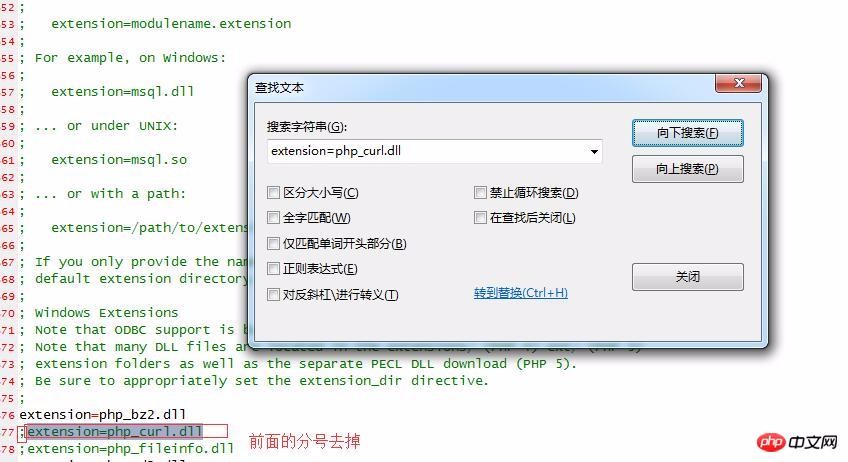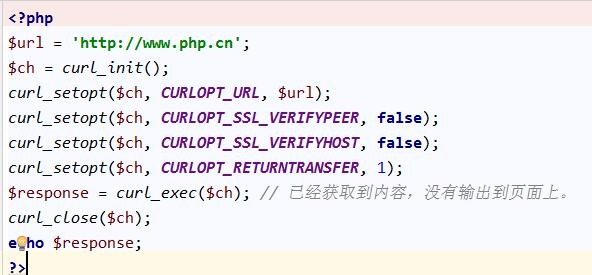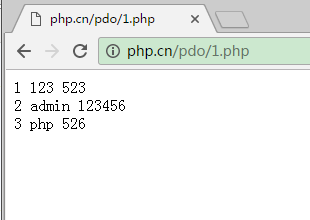Home >Backend Development >PHP Tutorial >Recommend 10 usage examples of the exec() function
In PHP, the curl_exec function is one of the PHP cURL function lists. Its function is to execute a cURL session. This article summarizes some usage examples of the php curl_exec function. 1. Detailed explanation of usage examples of PHP curl_exec function. This article explains in detail the syntax and examples of PHP curl_exec function. This function should be called after a cURL session is initialized and all options are set. Its return value: TRUE on success, or FALSE on failure. However, if the CURLOPT_RETURNTRANSFER option is set, the function will return the result of the execution if it succeeds, and FALSE if it fails. 2. php curl_exec() function CURL method of obtaining the return value. This article mainly introduces two methods of php curl_exec() function CURL obtaining the return value. The first method is to obtain the page content and directly output the example. The second method of obtaining page content without directly outputting example
1. php curl_exec() return value summary

Introduction: In PHP, the curl_exec function is one of the PHP cURL function lists. Its function is to execute a cURL session. This article summarizes some usage examples of the php curl_exec function.
2. php curl_exec() function CURL method to get the return value

Introduction: There is a parameter CURLOPT_RETURNTRANSFER in CURL: This parameter returns the information obtained by curl_exec() in the form of a file stream instead of outputting it directly. For example: The function of the CURLOPT_RETURNTRANSFER parameter is to assign the content obtained by CRUL to a variable. It defaults to 0 and directly returns the text stream of the obtained output. Sometimes, it would not be good if we want to use the return value for judgment or other purposes. So, sometimes we want the returned content to be stored as a variable instead of output directly, so what should we do?
3. Three ways to execute SQL statements in PDO

##Introduction: In PDO, we can use three ways to execute SQL statements, namely the exec() method, the query method, and the prepared statement prepare() and execute() methods~
4. A brief introduction to the troubleshooting method for PHP's exec() function without return value (recommended)

Introduction: The editor below will bring you a brief discussion on the troubleshooting method of PHP's exec() function not returning a value (a must-read). The editor thinks it’s pretty good, so I’ll share it with you now and give it as a reference. Let’s follow the editor to take a look
5. Details introduction to the method of using PDO exec() function to query the number of affected rows after execution

Introduction: This article mainly introduces how to use the exec() function under PDO to query the number of affected rows after execution. Combined with the example form, the relevant implementation techniques and precautions for querying the number of affected rows after the execution of the exec() function when using PDO to perform add, delete, and modify operations in PHP are analyzed. Friends in need can refer to the following
6. Execute SQL statements in PDO

7.
PHP Security-Command Injection #Introduction: Command Injection Using system commands is a dangerous operation, especially when you try to use remote data to construct the command to be executed. So true. If contaminated data is used, command injection vulnerabilities arise. Exec()... 8. Python built-in function——compile Introduction: This function is used to compile the source code of a string. The result can generate bytecode or AST (abstract syntax tree). The bytecode can be executed using the function exec(), and The AST can use eval() to continue compilation. 2. The parameter source is the source code of a string, or an array of AST objects. 9. Analysis using PHP shell script ##Introduction: After a long period of development of PHP, many users know PHP very well. Here I will express my personal understanding and discuss it with everyone. Mostly I use exec() commands and data arrays for everything. Or use shell_exec() for simpler commands, especially if you don't care about the results. 【Related Q&A Recommendations】: javascript - Help on regular expressions ##php - Warning: exec() [function.exec]: Unable to fork, problem with configuring git webhook php - swoole_process->exec() cannot redirect output to the specified file shell - PHP ends the C program loop The parameters in the java.lang.Runtime.getRuntime().exec(cmd) command cannot use spaces. what to do? 



The above is the detailed content of Recommend 10 usage examples of the exec() function. For more information, please follow other related articles on the PHP Chinese website!